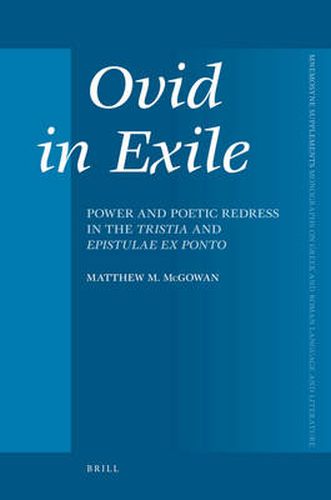Readings Newsletter
Become a Readings Member to make your shopping experience even easier.
Sign in or sign up for free!
You’re not far away from qualifying for FREE standard shipping within Australia
You’ve qualified for FREE standard shipping within Australia
The cart is loading…






In response to being exiled to the Black Sea by the Roman emperor Augustus in 8 AD, Ovid began to compose the Tristia and Epistulae ex Ponto and to create for himself a place of intellectual refuge. From there he was able to reflect out loud on how and why his own art had been legally banned and left for dead on the margins of the empire. As the last of the Augustan poets, Ovid was in a unique position to take stock of his own standing and of the place of poetry itself in a culture deeply restructured during the lengthy rule of Rome’s first emperor. This study considers exile in the Tristia and Epistulae ex Ponto as a place of genuine suffering and a metaphor for poetry’s marginalization from the imperial city. It analyzes, in particular, Ovid’s representation of himself and the emperor Augustus against the background of Roman religion, law, and poetry.
$9.00 standard shipping within Australia
FREE standard shipping within Australia for orders over $100.00
Express & International shipping calculated at checkout
In response to being exiled to the Black Sea by the Roman emperor Augustus in 8 AD, Ovid began to compose the Tristia and Epistulae ex Ponto and to create for himself a place of intellectual refuge. From there he was able to reflect out loud on how and why his own art had been legally banned and left for dead on the margins of the empire. As the last of the Augustan poets, Ovid was in a unique position to take stock of his own standing and of the place of poetry itself in a culture deeply restructured during the lengthy rule of Rome’s first emperor. This study considers exile in the Tristia and Epistulae ex Ponto as a place of genuine suffering and a metaphor for poetry’s marginalization from the imperial city. It analyzes, in particular, Ovid’s representation of himself and the emperor Augustus against the background of Roman religion, law, and poetry.